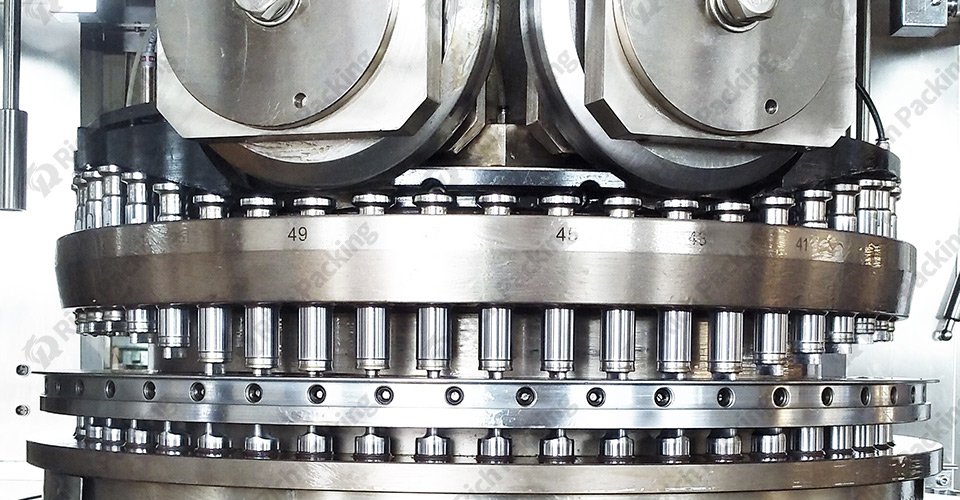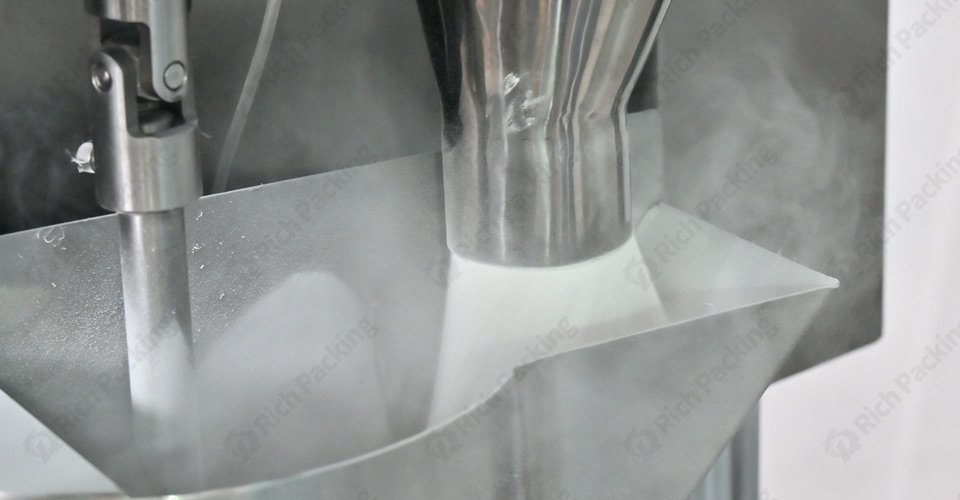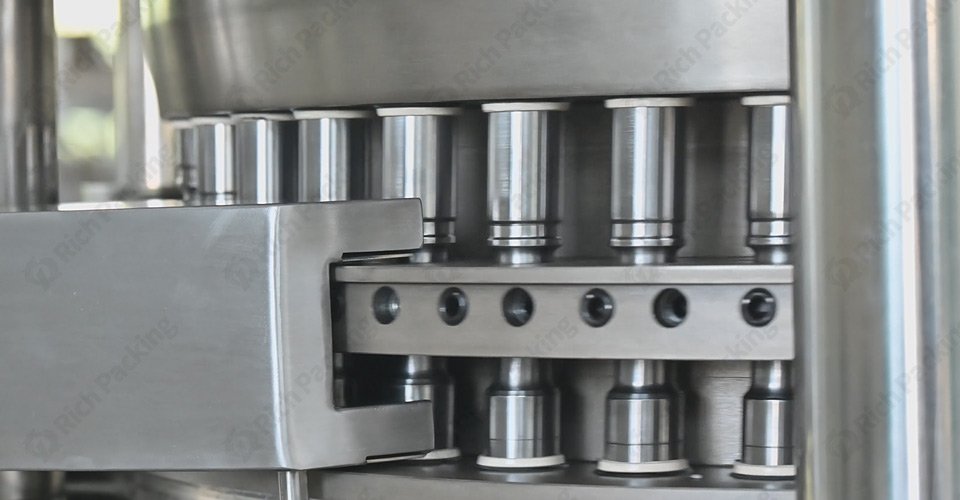Categories
New Blog
Tags
During the production process of rotary tablet presses, dust problems are something you will often encounter. Dust problems not only affect the quality of tablet production and reduce efficiency, they also cause wear and tear on your equipment and lead to breakdowns. This article will help you gain an in-depth understanding of the causes of dust and how to effectively address them, ensuring that your equipment runs more consistently and produces more efficiently.

How do dust problems affect tablet production?
Dust isn't just a nuisance on the shop floor, it has a direct impact on your productivity, equipment life and product quality. Without effective dust control, your rotary tablet press may face the following problems:
Impaired product quality: Dust can have a noticeable effect on the appearance and quality of tablets. When dust accumulates on the surface of tablets, it can lead to impaired product appearance, reduced quality and cross contamination to lower the pass rate. Excessive dust may lead to uneven composition of tablets, and the efficacy of tablets may be affected as a result.
Increased wear and tear of equipment: During the operation of the equipment, dust accumulates on the molds, punches and internal parts, leading to accelerated wear and tear. Dust can also clog the air and oil lines inside the equipment, leading to frequent downtime and maintenance. Each equipment cleaning is not only time-consuming, but also directly affects your production schedule.
Production Environment and Employee Health: Dust has a direct impact on the air quality of the production plant if it is not controlled in a timely manner. Workers exposed to high dust levels for long periods of time may face respiratory problems. In addition, too much dust will increase the fire hazard in the workshop, which directly threatens the safety of the workplace.

Common causes of high dust levels in rotary tablet presses
Dust problems arising from the operation of rotary tablet presses can stem from a variety of causes. The following are common problems that lead to dust in production.
If you are using raw materials that are too fine in granularity it will result in poor flowability, and then it will tend to produce fine dust during the tabletting process. This dust not only floats around the equipment, but also adheres to the tablet surface, affecting the quality of the finished product.
The sealing performance of a rotary tablet press determines whether the dust can be contained inside the machine. If the machine is poorly sealed, dust will escape through the gaps in the equipment and pollute the shop air.
During high-speed tablet pressing, the friction between the punch and the mold increases, leading to more dust. While too fast a tablet pressing speed can increase productivity, you may find that the dust problem is aggravated as well.
Overfeeding of raw materials can overload the equipment, causing excess dust to escape during the tabletting process. Uneven dosing or exceeding the equipment's designed capacity can exacerbate dust problems.
A machine's exhaust system that does not effectively remove excess air and dust from the interior will trap the dust inside the machine, where it can accumulate over time and escape to the outside.
To ensure your production process is smooth and dust is properly controlled, here are a few key solutions.
Enhancing the sealing design of your equipment can effectively reduce dust leakage. In particular, the seal between the punch and the mold directly affects how well dust escapes. Better sealing materials and structural design can effectively curb dust problems.
Ordinary dosers tend to cause uneven supply of raw materials, which in turn increases dust generation. Forced feeders, on the other hand, can avoid excessive dust generation by mechanically feeding raw materials into the mold in a uniform and consistent manner. This significantly reduces the frequency of dust problems.
Dust buildup can be effectively reduced by upgrading the equipment's accompanying dust extraction system. An efficient vacuum system will clean up dust spills from turntables and dies in a timely manner, preventing dust from building up inside the equipment. You can also consider increasing the ventilation system in your workshop to further reduce the concentration of dust in the air.
While increasing the speed of tablet pressing can increase production, you need to weigh the relationship between dust control and productivity. By lowering the tableting speed, you can reduce the friction between the punch and the mold, which in turn reduces dust production.
Choosing raw materials that flow better, or pretreating materials, such as increasing granularity or mixing homogeneity, can reduce dust generation.
You need to check and clean your equipment regularly during your daily production process to avoid dust accumulation due to continuous production. Regular maintenance extends equipment life and prevents equipment failure due to dust buildup.
Forced feeders significantly improve material supply uniformity and reduce dust problems compared to conventional feeders. By mechanically pushing the material, the forced feeder not only avoids overfeeding, but also reduces the escape of dust from the material during transport.
This type of equipment modification may require some initial investment, but in the long run, it can drastically reduce the wear and tear and maintenance needs of equipment caused by dust, and improve productivity.

Long-term management solutions for dust problems
In addition to equipment retrofitting, you can also take the following measures to ensure that dust problems are effectively controlled in the long term.
Reduce the retention of dust in the shop air by creating a more efficient ventilation system. You can consider installing exhaust fans to ensure that the air quality in your workshop meets safety standards.
Your production team needs to be aware of the proper practices to avoid human error that can lead to increased dust. Establishing cycle equipment cleaning and maintenance norms and training can help your employees operate equipment and raw material handling correctly, reducing dust issues.
Potential dust problems can be detected in a timely manner through regular testing of equipment components. This prevents equipment failure and ensures the stability of the production process.
To help you visualize the differences between regular and forced feeders, here is a comparison of the two in terms of dust control:
|
Feature |
Traditional Feeder |
Force Feeder |
|
Dust Control |
Poor, dust easily escapes |
Excellent, minimizes dust |
|
Material Feed Uniformity |
Inconsistent, causes dust |
Uniform feed, reduces dust |
|
Equipment Maintenance |
Frequent, requires cleaning |
Less frequent, lower cleaning |
|
Initial Investment |
Low |
Higher, but lower long-term |
By taking the above measures, you can effectively solve the problem of dust during the production of rotary tablet presses. This not only helps to improve product quality and work environment, but also extends the service life of the equipment and ensures stable and efficient operation of the production line.